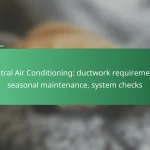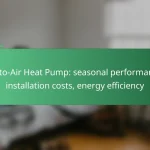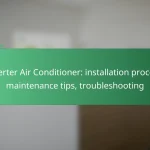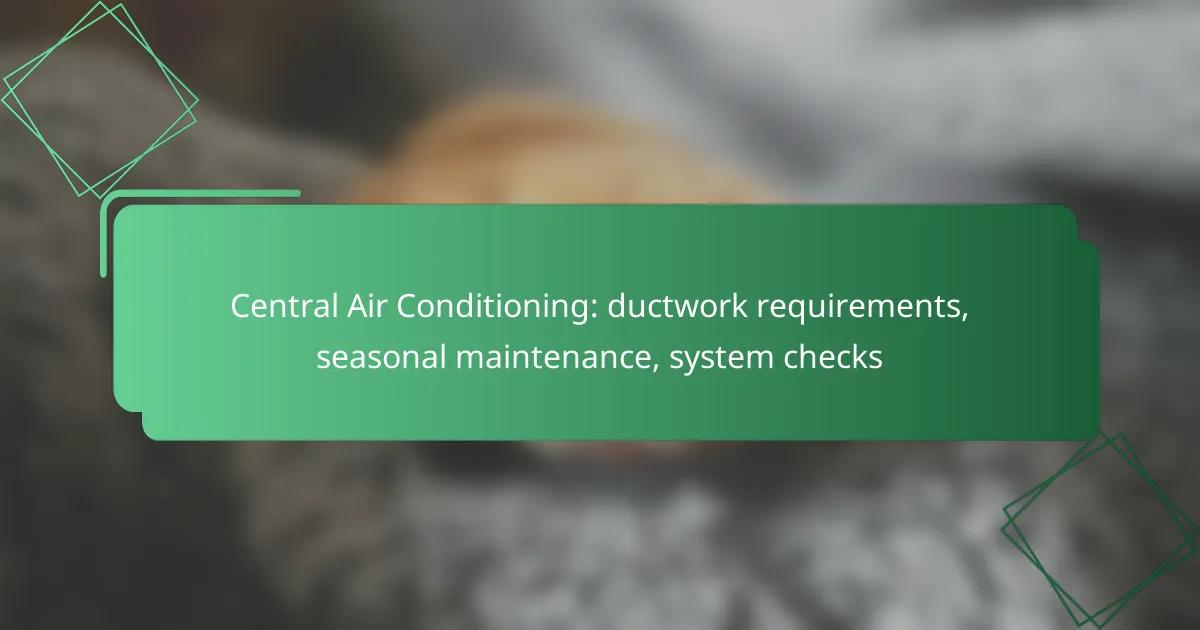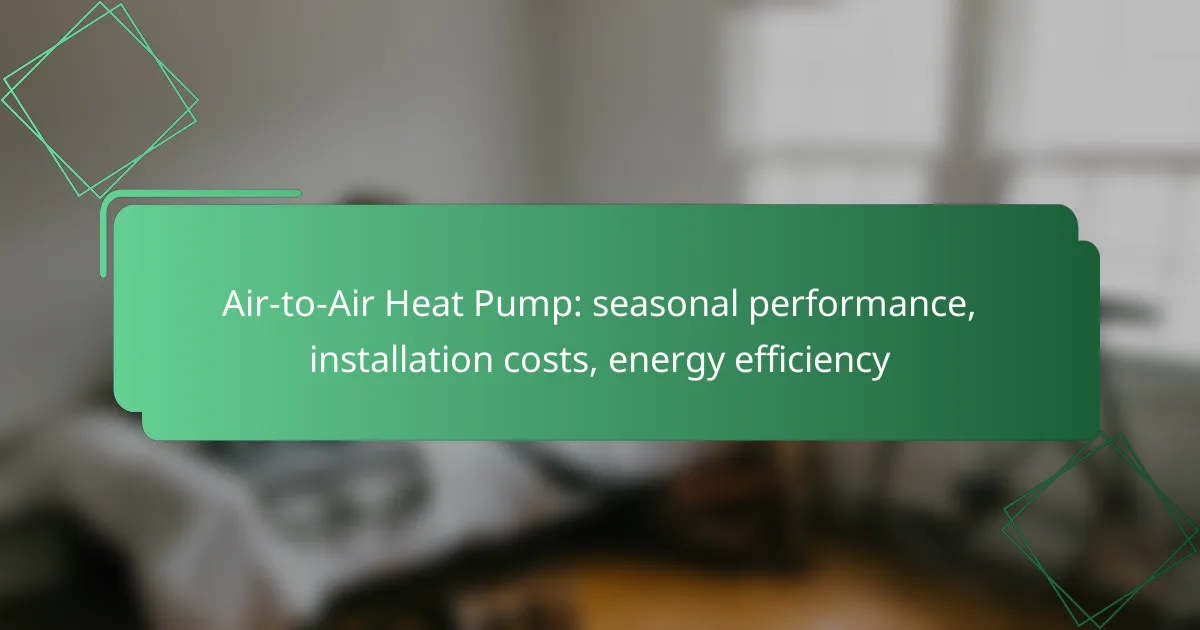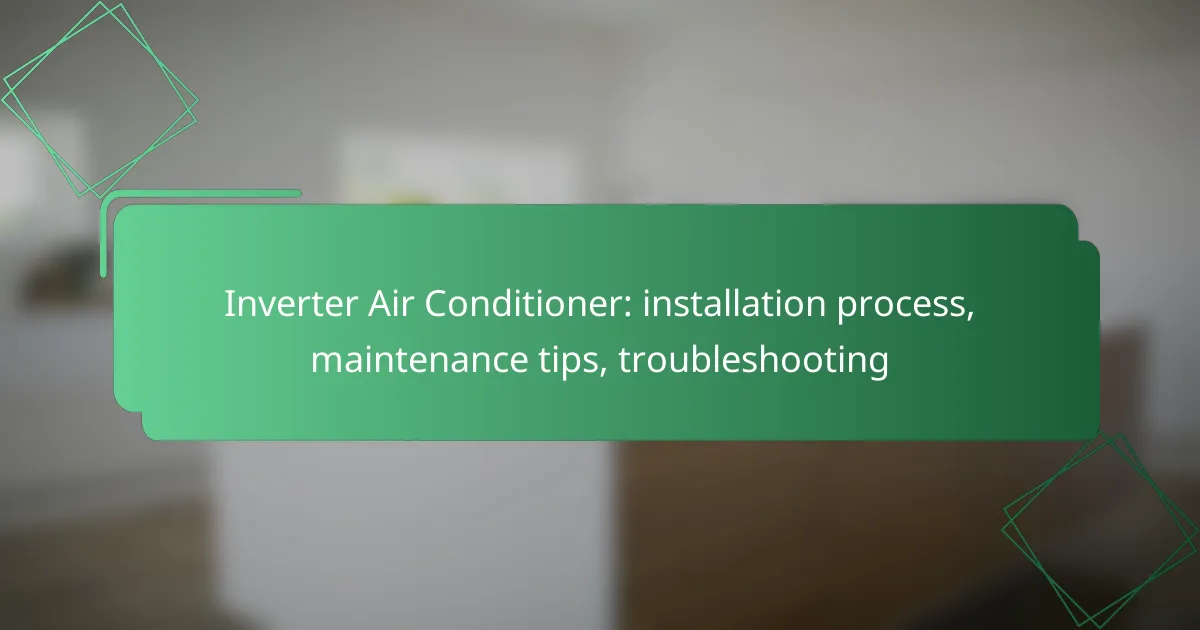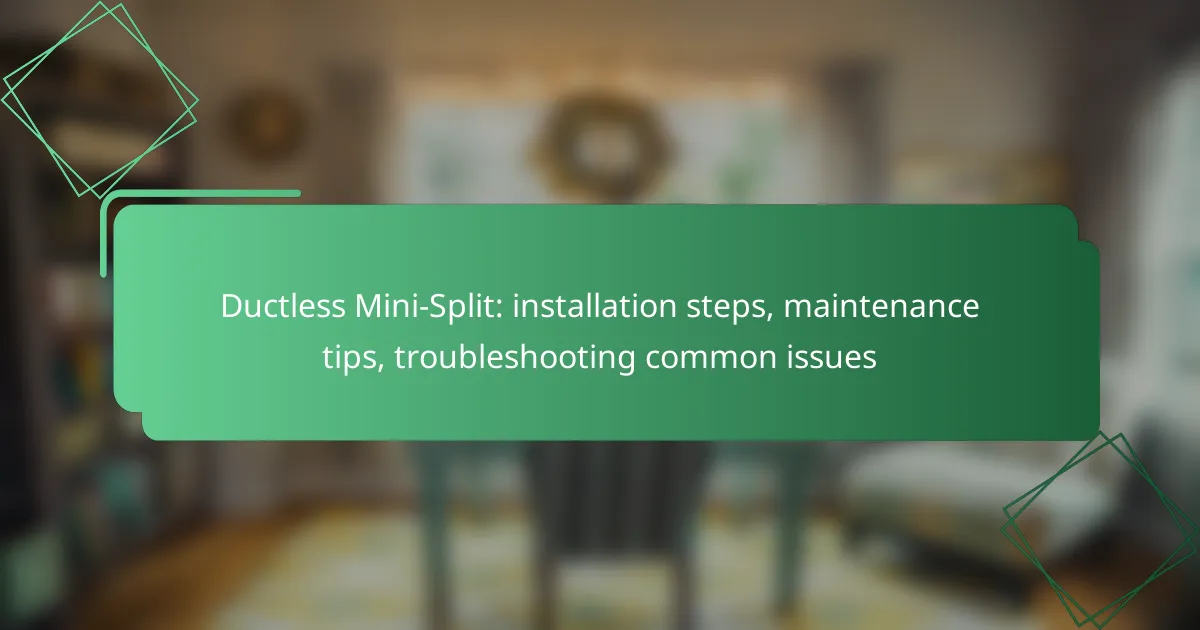Central air conditioning systems require careful attention to ductwork specifications, including materials, sizes, and insulation, to ensure efficient air distribution and comfortable indoor climates. Seasonal maintenance and regular system checks, such as performance diagnostics and filter replacements, are vital for enhancing efficiency and extending the lifespan of the system.
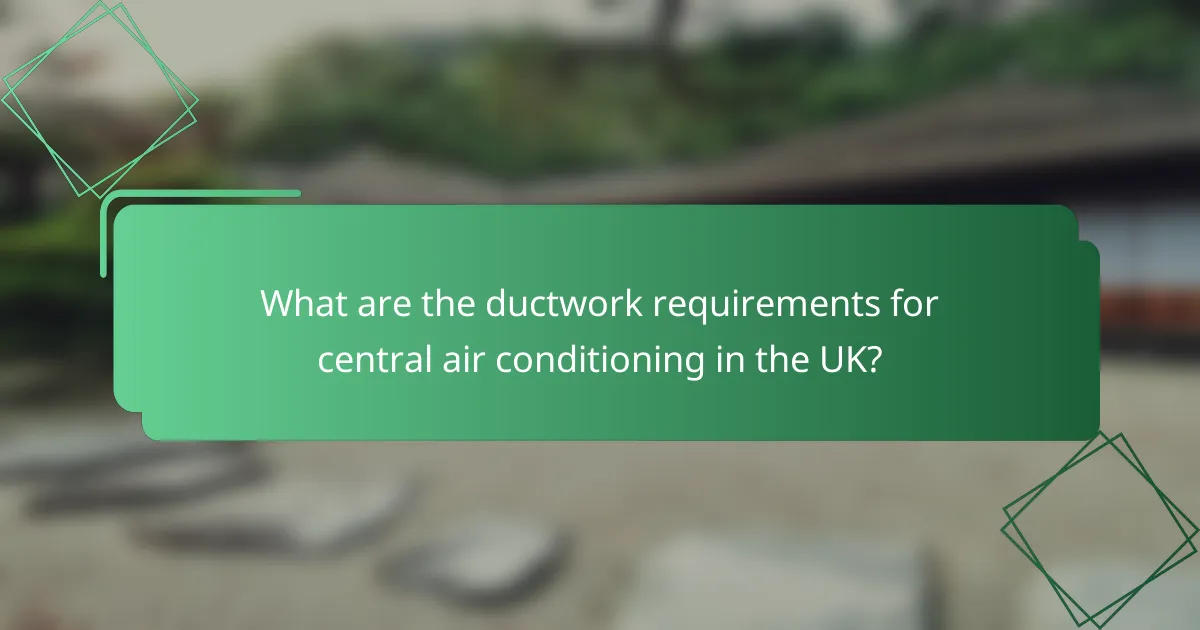
What are the ductwork requirements for central air conditioning in the UK?
The ductwork requirements for central air conditioning in the UK involve specific materials, sizes, layouts, insulation, and installation practices to ensure optimal performance and energy efficiency. Proper ductwork is essential for effective air distribution and maintaining comfortable indoor temperatures.
Material specifications
Ductwork for central air conditioning systems in the UK is typically made from galvanized steel, aluminum, or flexible plastic. Galvanized steel is durable and resistant to corrosion, making it a popular choice for long-lasting installations. Aluminum is lightweight and easy to handle, while flexible plastic ducts are often used in tight spaces due to their adaptability.
It is crucial to select materials that meet UK building regulations and standards, ensuring safety and efficiency. For instance, duct materials should be non-combustible and have low thermal conductivity to minimize heat loss.
Size and layout considerations
The size of ductwork is vital for maintaining proper airflow and system efficiency. Ducts should be sized according to the specific heating and cooling load calculations for the space, typically using methods such as Manual D or similar guidelines. Oversized ducts can lead to inefficient airflow, while undersized ducts may cause strain on the system.
Layout considerations include minimizing bends and turns in the ductwork to reduce resistance and improve airflow. Straight runs are preferable, and the placement of ducts should allow for even distribution of conditioned air throughout the space.
Insulation standards
Insulation is essential for ductwork to prevent energy loss and condensation issues. In the UK, ducts located in unconditioned spaces, such as attics or crawl spaces, should be insulated to a minimum thickness of 25mm to comply with energy efficiency standards. Insulation materials should have a high R-value to ensure effective thermal resistance.
Proper insulation not only enhances energy efficiency but also helps to reduce noise levels associated with air movement. Selecting appropriate insulation materials that meet UK regulations is crucial for maintaining system performance.
Installation guidelines
Installation of ductwork should be performed by qualified professionals to ensure compliance with UK building codes and standards. Ducts must be securely fastened and sealed to prevent air leaks, which can significantly impact system efficiency. Use mastic sealant or metal tape to seal joints and seams effectively.
It is also important to maintain proper clearances around ductwork to allow for adequate airflow and access for maintenance. Regular inspections should be scheduled to check for any signs of wear or damage, ensuring the system operates efficiently over time.
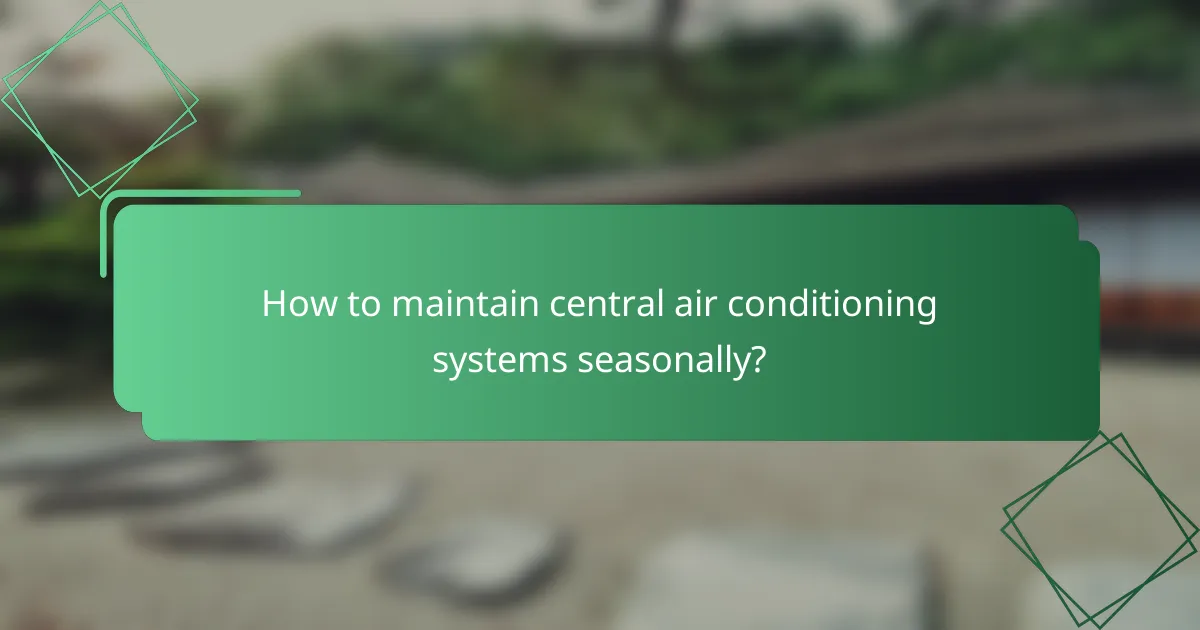
How to maintain central air conditioning systems seasonally?
Seasonal maintenance of central air conditioning systems is crucial for efficiency and longevity. Regular checks and tasks help ensure optimal performance and can prevent costly repairs down the line.
Spring maintenance checklist
In spring, focus on preparing your air conditioning system for the warmer months. Start by replacing or cleaning the air filters to improve airflow and efficiency. Check the outdoor unit for debris and ensure it is clear of any obstructions.
Inspect the refrigerant levels and look for any signs of leaks. If necessary, schedule a professional service to recharge the system. Additionally, test the thermostat to ensure it is functioning correctly and calibrate it if needed.
Fall maintenance checklist
As the cooling season ends, fall maintenance is essential to prepare your system for winter. Begin by turning off the power to the outdoor unit and cleaning it thoroughly to remove leaves and dirt. Cover the unit with a protective cover to prevent damage from snow and ice.
Check the ductwork for any leaks or blockages, and seal them to improve efficiency. It’s also a good time to schedule a professional inspection to ensure that all components are in good working order before the heating season begins.
Common maintenance tasks
Regular maintenance tasks for central air conditioning systems include checking and replacing air filters every 1-3 months, cleaning the condenser coils, and ensuring that the drain line is clear. These tasks help maintain airflow and prevent system strain.
Consider scheduling annual professional inspections to assess system performance and efficiency. During these visits, technicians can identify potential issues early, saving you money on repairs and extending the life of your system.

What system checks are essential for central air conditioning?
Essential system checks for central air conditioning include performance diagnostics, filter replacement frequency, and refrigerant level checks. Regularly performing these checks ensures optimal operation, energy efficiency, and prolongs the system’s lifespan.
Performance diagnostics
Performance diagnostics involve assessing the overall functionality of the central air conditioning system. Key indicators include checking the temperature differential between supply and return air, which should typically be around 15-20 degrees Fahrenheit.
Utilizing diagnostic tools can help identify issues such as airflow restrictions or compressor malfunctions. Regular diagnostics can prevent costly repairs and ensure the system operates efficiently, saving energy and reducing utility bills.
Filter replacement frequency
Replacing air filters is crucial for maintaining air quality and system efficiency. Generally, filters should be replaced every 1-3 months, depending on usage and filter type. Homes with pets or high dust levels may require more frequent changes.
A clogged filter can restrict airflow, leading to increased energy consumption and potential system damage. Establishing a routine schedule for filter replacement can help maintain optimal airflow and improve indoor air quality.
Refrigerant level checks
Checking refrigerant levels is vital for the cooling efficiency of a central air conditioning system. Low refrigerant levels can indicate leaks, which can significantly impact performance and lead to compressor failure if not addressed.
Technicians typically use gauges to measure refrigerant pressure and ensure it meets manufacturer specifications. Regular checks can help maintain system efficiency and prevent costly repairs, ensuring the air conditioning operates smoothly throughout the cooling season.

What are the benefits of professional servicing in London?
Professional servicing of central air conditioning systems in London offers numerous advantages, including enhanced system performance, compliance with warranties, and improved energy efficiency. Regular maintenance by qualified technicians ensures that your system operates optimally and lasts longer.
Expertise and experience
Hiring professionals for air conditioning servicing brings specialized knowledge and hands-on experience. Technicians are trained to identify potential issues that an untrained eye might miss, such as refrigerant leaks or electrical problems. Their expertise allows for precise diagnostics and effective solutions, ensuring your system runs smoothly.
In London, many service providers are certified and adhere to local regulations, which adds an extra layer of assurance. This expertise not only enhances performance but also minimizes the risk of costly repairs in the future.
Warranty compliance
Many air conditioning units come with warranties that require regular professional servicing to remain valid. Failing to adhere to these requirements can void your warranty, leaving you responsible for any repairs or replacements. Professional servicing ensures that all maintenance tasks are documented, which is crucial for warranty claims.
In London, keeping up with warranty compliance can save you significant costs down the line. Always check your warranty terms and schedule regular maintenance to protect your investment.
Energy efficiency improvements
Regular professional servicing can lead to significant energy efficiency improvements in your central air conditioning system. Technicians can clean coils, check refrigerant levels, and ensure that all components are functioning correctly, which can reduce energy consumption. This not only lowers your utility bills but also contributes to a more sustainable environment.
In London, where energy costs can be high, even small efficiency gains can translate into substantial savings over time. Consider scheduling annual maintenance to keep your system running at peak efficiency and to take advantage of potential energy-saving upgrades recommended by professionals.
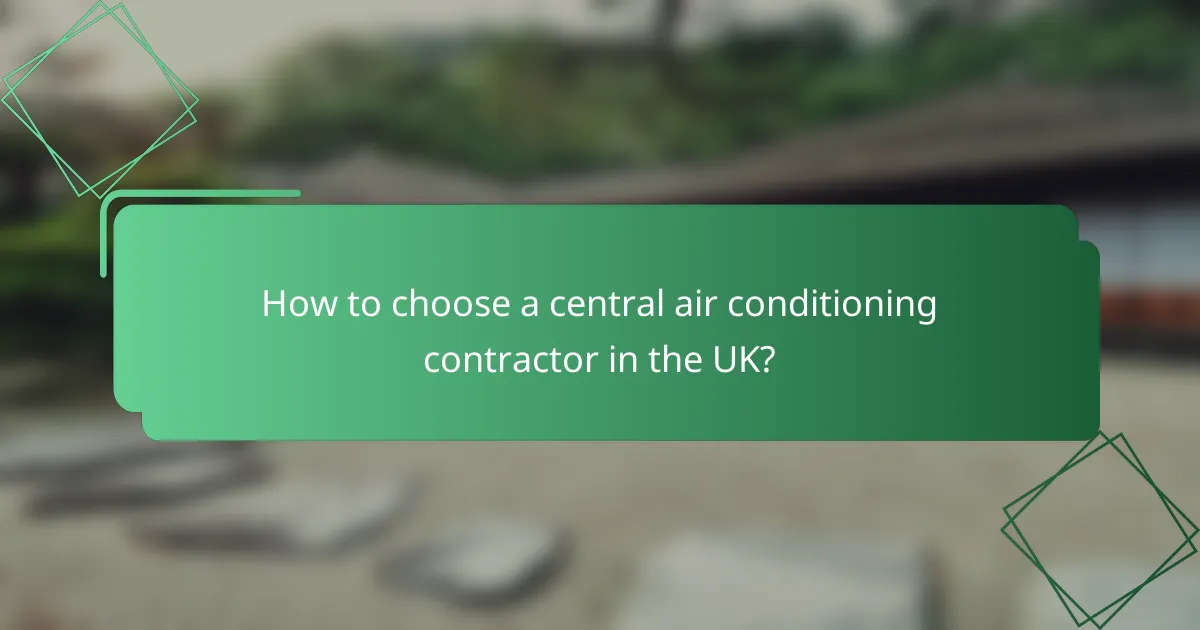
How to choose a central air conditioning contractor in the UK?
Choosing a central air conditioning contractor in the UK involves verifying their qualifications, reputation, and experience. Look for contractors who are licensed and have positive customer feedback to ensure quality service.
Licensing and certifications
In the UK, it is essential to hire a contractor who holds the necessary licenses and certifications. Look for professionals who are registered with recognized bodies such as the Gas Safe Register or the Institute of Refrigeration. These credentials indicate compliance with safety and industry standards.
Additionally, check if the contractor has relevant qualifications, such as City & Guilds or NVQ certifications in air conditioning and refrigeration. This ensures they have the technical skills required for installation and maintenance.
Customer reviews and testimonials
Customer reviews and testimonials provide insight into a contractor’s reliability and quality of work. Look for feedback on platforms like Trustpilot or Google Reviews to gauge overall satisfaction. Pay attention to comments regarding punctuality, professionalism, and post-installation support.
Consider asking for references from previous clients. Speaking directly to past customers can give you a clearer picture of what to expect and help you avoid potential pitfalls.

